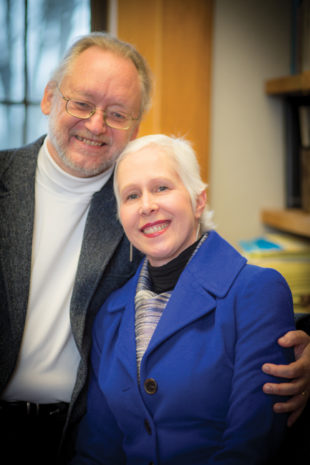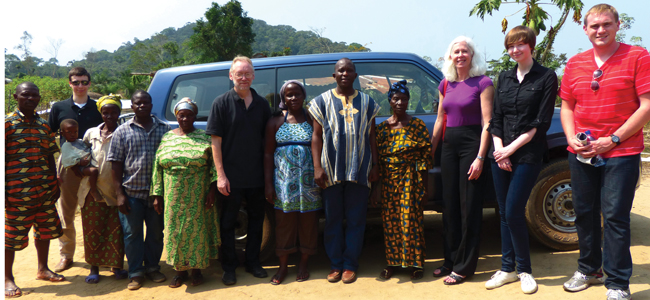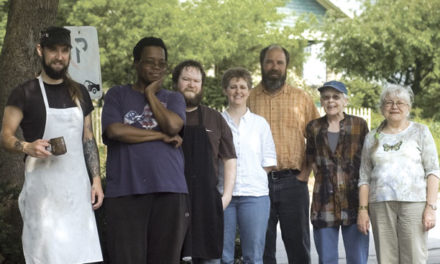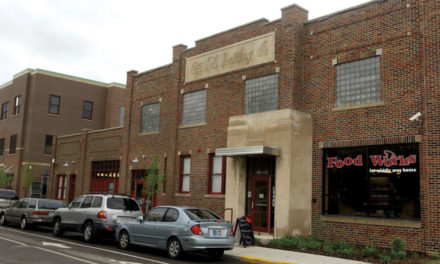
David and Susan Williams of the Center for Constitutional Democracy. Photo by Tyagan Miller
BY ELISABETH ANDREWS, PHOTOGRAPHY BY TYAGAN MILLER
From their headquarters in an old house on East 3rd Street, two Indiana University law professors are helping international leaders and revolutionaries build democracy and promote human rights around the world.
No one expected quick results from David Williams’ first meeting with the group of refugees, least of all Williams. A Harvard-trained professor of constitutional law, he was well aware of the obstacles facing the men who had made their way to Bloomington from their temporary homes across the country and around the world.
The men were rebel soldiers who had fled Burma (also known as Myanmar) after losing loved ones, and in some cases limbs, in the relentless civil war between the country’s military dictatorship and several ethnic-minority armies. For years, rebel soldiers had been fighting and dying to protect their families and villages, but they came to Williams for a longer-term solution. They wanted his help drafting a constitution.
Prior to that day in 2003, David and his wife, Susan Williams, then in their early 40s, had been the ordinary sort of scholars who reveled in ideas and principles. The couple had joined IU School of Law–Bloomington (now the Maurer School of Law) a decade earlier after earning tenure at Cornell University following clerkships with (now-Supreme Court Justice) Ruth Bader Ginsburg, who was then on the District of Columbia Court of Appeals. Both had subsequently received endowed chairs at IU — David became the John S. Hastings Professor of Law in 2001, and Susan the Walter W. Foskett Professor in 2002.
All these academic accomplishments, however, belonged to a world of philosophies and models and concepts. The 12 members of the Burmese Chin Forum, standing at attention in the law school conference room, needed real help.
“The Burmese democracy movement arrived on my doorstep,” David recalls. “I had been advising a student on his dissertation, Andrew Lian, who had been captured by the Indian army after fleeing across the border, but escaped and got to Bloomington with a scholarship from the U.S. State Department. He asked if I would meet with some other expatriates. They knew they needed something that could come after the fighting ended that would secure the people’s rights.”
In the course of the daylong meeting, which centered on reviewing the provisional constitution the dissidents had written, “We just kind of fell in love with each other,” David says. “They were so earnestly engaged. All this time I’d been thinking about constitutions theoretically, but here was a chance for that knowledge to make a difference in the world.”















